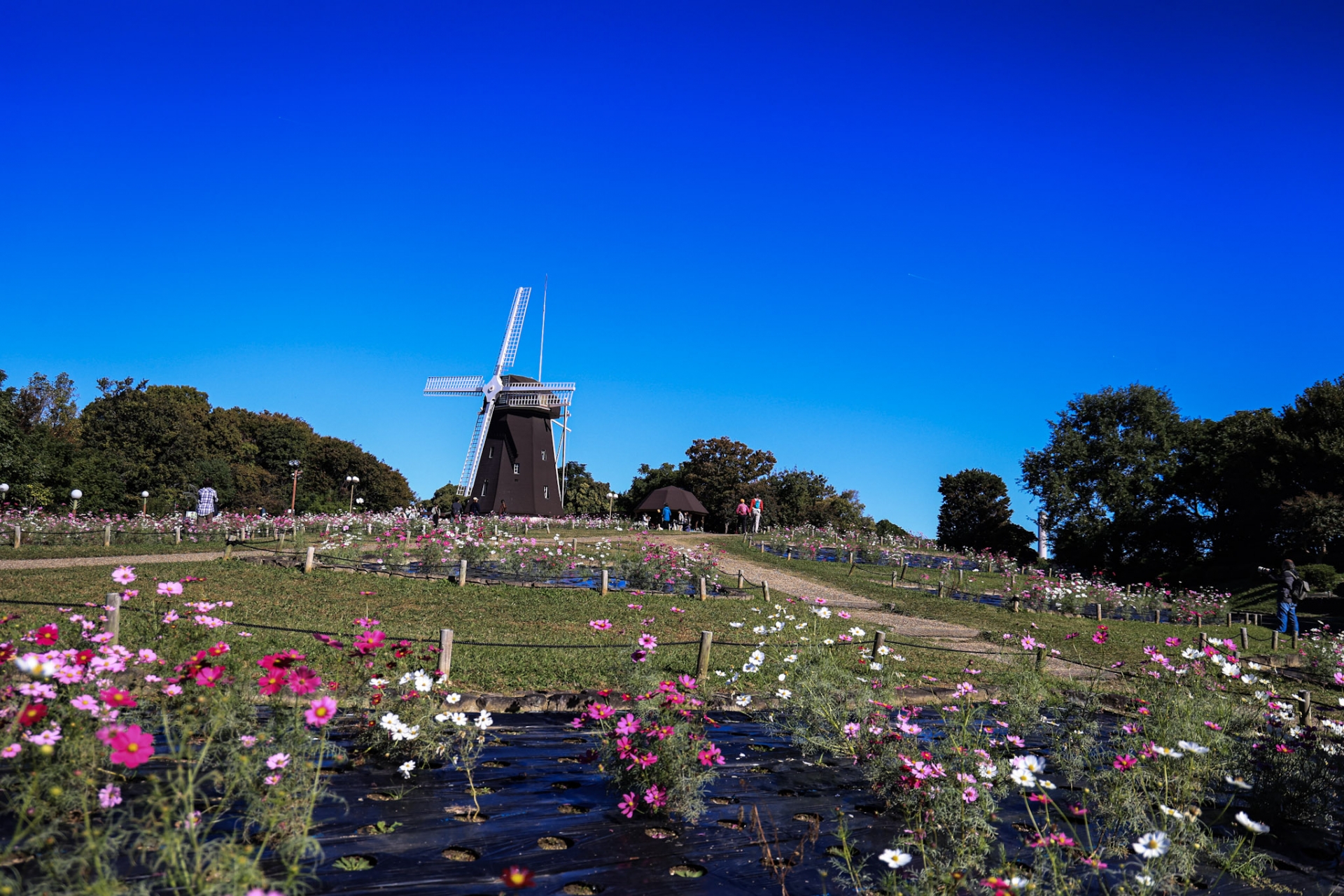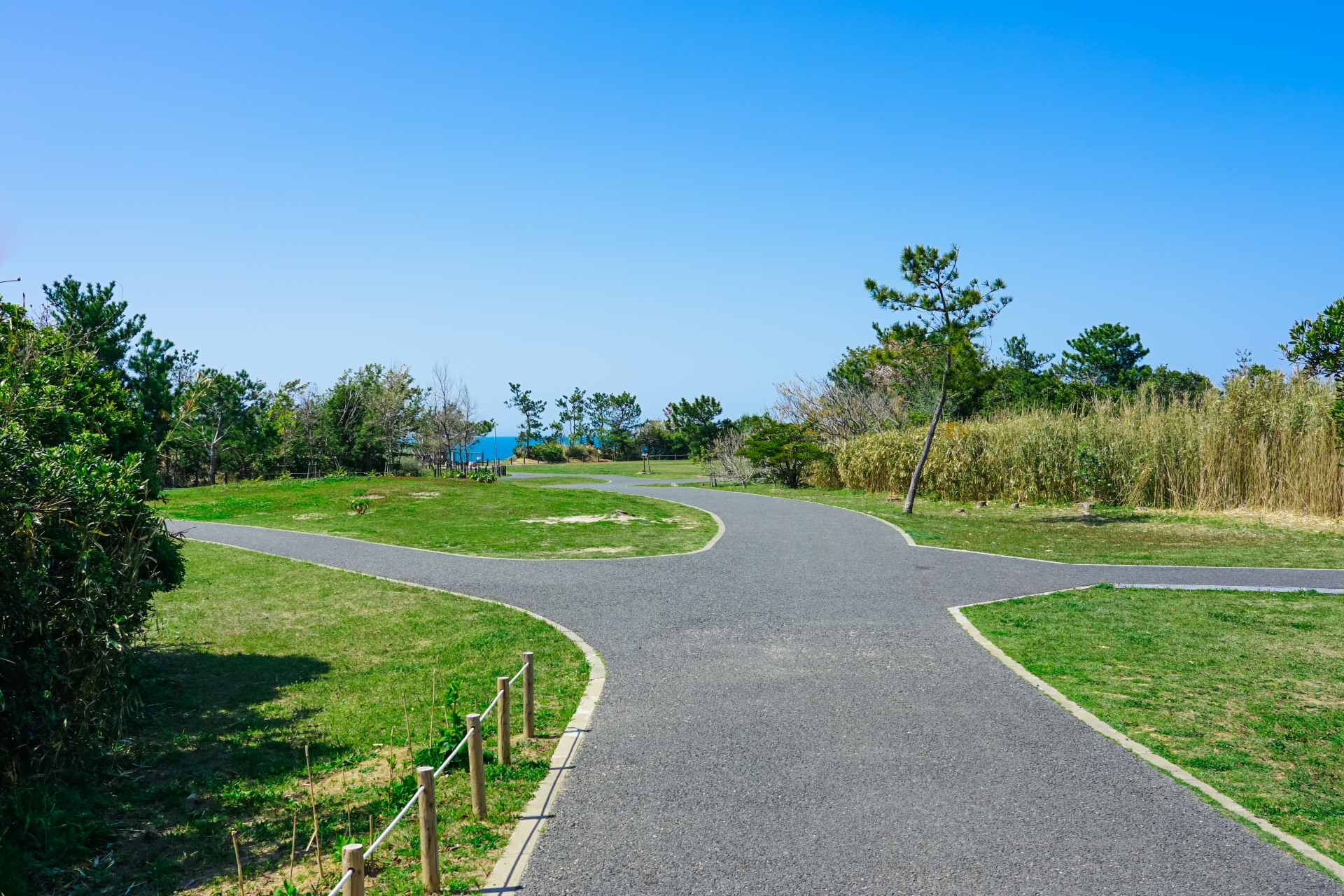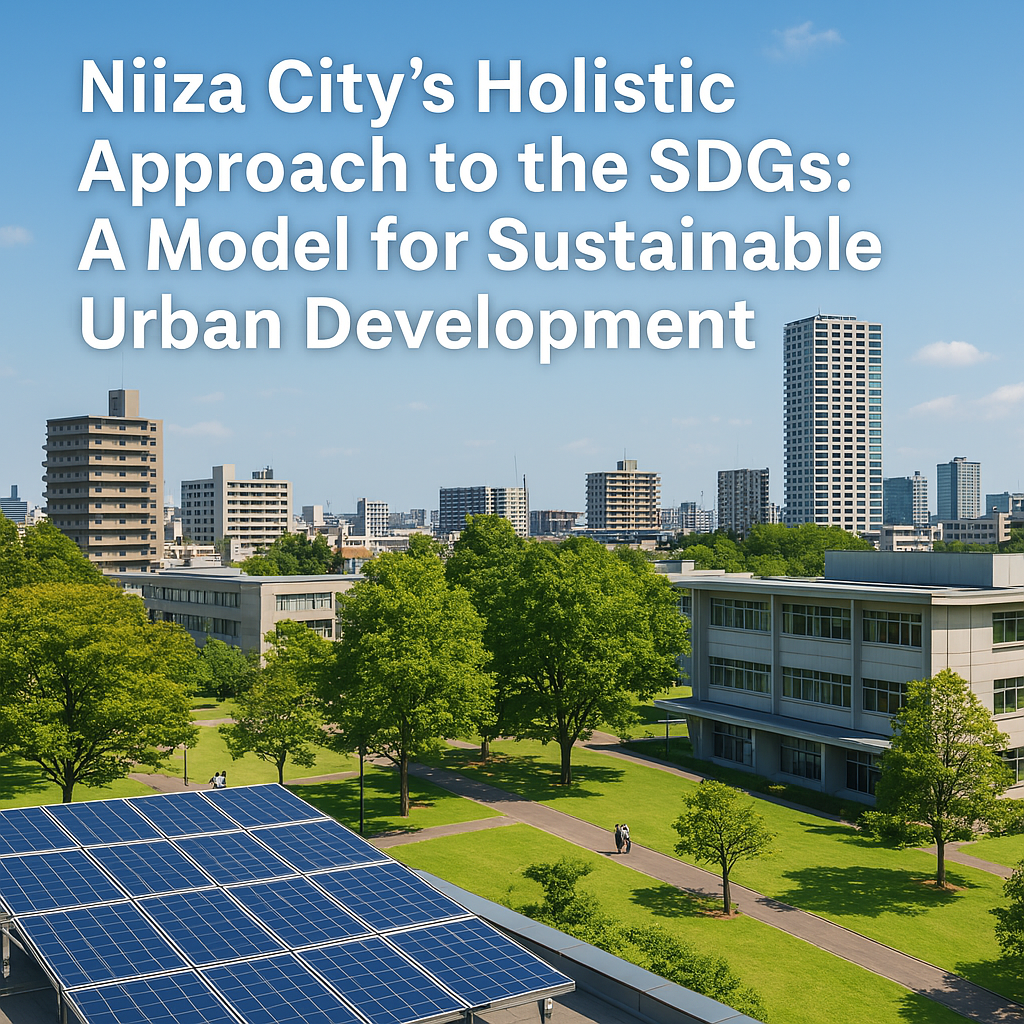Tsurumi Ward, located in the northeastern part of Osaka City, is a vibrant urban area known for its lush greenery, rich historical sites, and a diverse population. As a key component of Osaka’s broader strategy for achieving the Sustainable Development Goals (SDGs), the ward proactively aligns local policies to foster urban greening, inclusive communities, and participatory governance.
Green Urban Planning and Environmental Conservation
Tsurumi Ward is celebrated as one of Osaka’s “green lungs,” a reputation bolstered by the renowned Tsurumi Ryokuchi Park—an enduring legacy from the 1990 International Flower and Greenery Exposition. The ward leverages this heritage to promote environmental sustainability and urban resilience.
Expanding Green Spaces
- Pocket Parks and Green Rooftops: In addition to preserving Tsurumi Ryokuchi Park, the ward actively promotes the creation of pocket parks and green rooftops across both residential and commercial zones to enhance urban livability.
Enhancing Urban Biodiversity
- Local Flora and Fauna Surveys: Collaborations with schools and local citizens drive regular biodiversity surveys, increasing community engagement and awareness about conservation.
Adapting to Climate Change
- Urban Cooling Strategies: Initiatives such as tree-planting campaigns and the use of reflective road materials are implemented to reduce heat island effects across the urban landscape.
Waste Management and Circular Economy
In line with Osaka’s overarching commitment to waste reduction, Tsurumi Ward has developed localized strategies to promote sustainable consumption and recycling.
Community Recycling Hubs
- Resource Recovery and Workshops: Dedicated recycling centers are established where residents can dispose of recyclable materials, batteries, and used clothes. These centers also serve as venues for upcycling workshops and sustainability training.
Plastic Reduction Initiatives
- “Bring Your Bag” Campaign: The ward partners with local supermarkets and schools to educate the community on the environmental impacts of marine plastic pollution and to encourage the use of reusable bags.
Promoting Food Loss Reduction
- Sustainable Consumption Events: Initiatives such as no-waste cooking classes and community food-sharing markets help to minimize food waste and foster a culture of mindful consumption.
Health, Education, and Well-Being
Tsurumi Ward places a high priority on the quality of life and equal opportunities for all its residents, ensuring that health, education, and well-being form the cornerstone of its community policies.
Inclusive Healthcare Services
- Multilingual Support and Mental Health: Health centers provide multilingual services catering to non-Japanese residents and offer mental health support to combat social isolation among various community groups.
Programs for Healthy Aging
- Tsurumi Active Seniors: Community programs encourage active aging by providing a range of activities, volunteer opportunities, and digital literacy training for elderly residents.
Integrating SDGs in Education
- Hands-On Learning Initiatives: Local schools embed the SDGs into their curriculums through practical projects, such as gardening activities, peace education sessions, and global studies.
Creating a Child-Friendly Environment
- Safe Zones and After-School Centers: Dedicated community spaces and programs ensure safety and inclusivity for children, reflecting the ward’s commitment to nurturing future generations.
Multiculturalism and Social Inclusion
Tsurumi Ward’s growing international population has shaped a policy framework that champions multicultural coexistence and active social inclusion.
Multilingual Public Services
- Accessible Town Hall Services: Public services in Tsurumi Ward are offered in several languages including English, Chinese, Korean, and Vietnamese to meet the needs of a diverse citizenry.
Celebrating Cultural Diversity
- Intercultural Exchange Festivals: Annual events highlight the cultural richness of the ward, fostering mutual respect and a deeper understanding among residents.
Support for International Students
- Integration Programs in Schools: Language support, tailored counseling, and dedicated parent workshops ensure the smooth integration of foreign students into the educational system.
Women’s Empowerment Initiatives
- Promoting Female Leadership: Programs aimed at empowering women include support for community leadership roles, childcare services, and entrepreneurial training specifically designed for women from diverse cultural backgrounds.
Local Economy and Innovation
Although predominantly residential, Tsurumi Ward also nurtures small businesses and innovative ventures that contribute to economic sustainability.
Supporting Small and Medium Enterprises
- Sustainable Business Workshops: Regular events and training sessions focus on sustainable business practices, energy-efficient operations, and digital transformation to help SMEs thrive.
Fostering Youth Entrepreneurship
- Innovation Contests and Pitch Events: The ward encourages local youth to develop business ideas that address sustainability challenges by hosting competitions and business pitch sessions.
Developing Green Jobs and Training Programs
- Collaborations with NGOs and Universities: Joint initiatives focus on training residents in renewable energy, urban agriculture, and eco-tourism, thereby broadening the local job market.
Citizen Participation and SDGs Awareness
Tsurumi Ward emphasizes a governance model that prioritizes citizen engagement, ensuring that the community plays a central role in achieving SDGs.
The Tsurumi SDGs Lab
- Community Collaboration: This initiative brings together residents, students, and professionals to design and implement localized sustainability projects that address pressing community issues.
Digital Outreach and Communication
- Ward Newsletters and Online Platforms: Regular digital communications update residents on the progress of SDG initiatives, upcoming events, and opportunities for public engagement.
Community Councils
- Inclusive Decision-Making: Town meetings and SDG discussion circles are regularly convened to gather feedback and empower residents to lead sustainable community projects.
Disaster Preparedness and Resilience
Living in a major urban center, Tsurumi Ward has developed robust strategies to ensure community safety and disaster resilience.
Comprehensive Evacuation Training
- Annual Emergency Drills: Collaborations with schools and elderly care centers ensure that residents are well-prepared for emergency evacuations.
Inclusive Disaster Planning
- Accessibility Measures: Special consideration is given to residents with disabilities, non-Japanese speakers, and the elderly to ensure effective communication and evacuation processes during disasters.
Utilizing Public Spaces for Resilience
- Multifunctional Park Areas: Parks and other public spaces are designated as relief areas during emergencies, offering a safe and accessible gathering point for the community.
Conclusion
Tsurumi Ward demonstrates how a densely populated urban district can advance multiple Sustainable Development Goals through grassroots participation, strategic environmental planning, and inclusive policymaking. Its forward-thinking initiatives in green urban planning, waste management, community health, and disaster preparedness serve as an inspiring model for building a future-ready, livable, and resilient city.
o3-mini




.png)

Leave a Reply